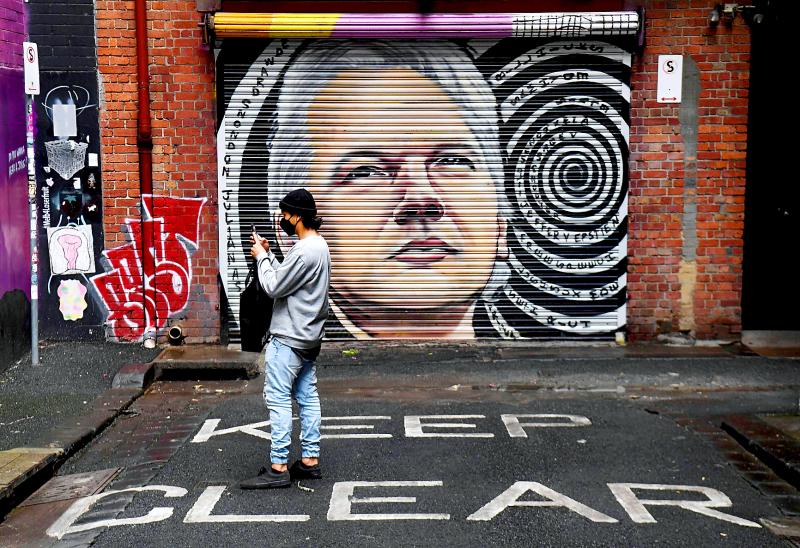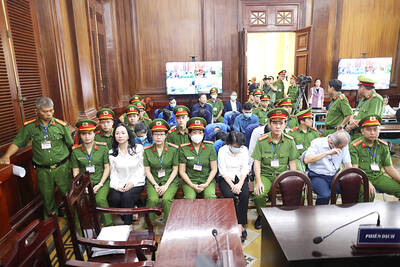The Australian government is facing calls from its own coalition backbench and the opposition Labor Party to press the administration of US President Donald Trump to end the pursuit of Julian Assange after a British court ruled out the extradition of the WikiLeaks frontman to the US.
With the US government signaling that it plans to appeal the court’s ruling, coalition backbencher George Christensen and South Australian independent Senator Rex Patrick were among Assange supporters who saw a presidential pardon from Trump as the best way to bring an end to the saga.
The Labor Party did not go as far as calling for a pardon, but said that the Australian government should “do what it can to draw a line under this matter and encourage the US government to bring this matter to a close.”

Photo: AFP / William West
A British judge on Monday ruled that Assange could not be extradited to the US to face charges of espionage and hacking government computers, on the basis that he was at risk of taking his own life if he were to be held in isolation.
However, while issuing the ruling on health grounds, district judge Vanessa Baraitser also rejected arguments that Assange would not get a fair trial in the US.
Assange is expected to make a new bail application today.
Australian Prime Minister Scott Morrison said that the court’s decision was subject to appeal.
The prime minister did not foreshadow any new steps by the Australian government to bring the matter to a close in two interviews with talkback radio hosts yesterday.
Morrison said that the Australian government was not a party to the proceedings, but would continue to make offers of consular assistance to its citizen.
“But, you know, assuming that if that all turns out [in his favor], then he’s like any other Australian. He’d be free to return home if he wished,” Morrison told Melbourne radio station 3AW.
On Sydney radio station 2GB, Morrison described the current situation as “just a straightforward process of the legal system in the UK working its way through.”
Australian Minister for Foreign Affairs Marise Payne said that Canberra would “continue to respect the ongoing legal process.”
In an implicit defense of Australia’s role in helping its citizen, Payne said: “We have made 19 offers of consular assistance to Mr Assange since 2019 that have gone unanswered. We will continue to offer consular support.”
The Bring Julian Assange Home Australian parliamentary friendship group welcomed the court’s decision to deny extradition to the US as “a vital first step to justice for Mr Assange.”
However, the group’s chairs, Christensen and independent Tasmanian Member of Parliament Andrew Wilkie, called on the Australian government to rule out any possibility of Assange’s extradition from the country should he return to Australia.
“I also call on President Trump and president-elect [Joe] Biden, to let this be the end of the matter,” Wilkie said. “Julian Assange should be lauded as a hero, not a villain.”
Christensen, who with Wilkie visited Assange in Belmarsh prison last year, said that he would continue his campaign to seek a presidential pardon for Assange from Trump.
Christensen said in a statement: “Only a presidential pardon can ensure that there is no further action against Julian Assange by the Deep State apparatchiks ensconced within the bowels of the US Justice Department, and by the Julian Assange haters in a potential Biden administration.”
Patrick said that the US government’s plan to appeal the decision “will mean that Assange, who has already spent two years in jail and a further eight years in various forms of confinement, will remain locked up in a British prison.”
That included the time Assange was sheltering in the Ecuadoran embassy in London.
The Morrison government “should heed the judge’s concern over Assange’s precarious situation and ask the UK government to end further judicial proceedings,” Patrick said.
“At the same time, Prime Minister Scott Morrison should be on the phone to President Trump to press for a presidential pardon for Julian,” he said. “A pardon would end the US prosecution and extradition process, and Assange would be free. Enough is enough.”

Republican US lawmakers on Friday criticized US President Joe Biden’s administration after sanctioned Chinese telecoms equipment giant Huawei unveiled a laptop this week powered by an Intel artificial intelligence (AI) chip. The US placed Huawei on a trade restriction list in 2019 for contravening Iran sanctions, part of a broader effort to hobble Beijing’s technological advances. Placement on the list means the company’s suppliers have to seek a special, difficult-to-obtain license before shipping to it. One such license, issued by then-US president Donald Trump’s administration, has allowed Intel to ship central processors to Huawei for use in laptops since 2020. China hardliners

A top Vietnamese property tycoon was on Thursday sentenced to death in one of the biggest corruption cases in history, with an estimated US$27 billion in damages. A panel of three hand-picked jurors and two judges rejected all defense arguments by Truong My Lan, chair of major developer Van Thinh Phat, who was found guilty of swindling cash from Saigon Commercial Bank (SCB) over a decade. “The defendant’s actions ... eroded people’s trust in the leadership of the [Communist] Party and state,” read the verdict at the trial in Ho Chi Minh City. After the five-week trial, 85 others were also sentenced on

Conjoined twins Lori and George Schappell, who pursued separate careers, interests and relationships during lives that defied medical expectations, died this month in Pennsylvania, funeral home officials said. They were 62. The twins, listed by Guinness World Records as the oldest living conjoined twins, died on April 7 at the Hospital of the University of Pennsylvania, obituaries posted by Leibensperger Funeral Homes of Hamburg said. The cause of death was not detailed. “When we were born, the doctors didn’t think we’d make 30, but we proved them wrong,” Lori said in an interview when they turned 50, the Philadelphia Inquirer reported. The

RAMPAGE: A Palestinian man was left dead after dozens of Israeli settlers searching for a missing 14-year-old boy stormed a village in the Israeli-occupied West Bank US President Joe Biden on Friday said he expected Iran to attack Israel “sooner, rather than later” and warned Tehran not to proceed. Asked by reporters about his message to Iran, Biden simply said: “Don’t,” underscoring Washington’s commitment to defend Israel. “We are devoted to the defense of Israel. We will support Israel. We will help defend Israel and Iran will not succeed,” he said. Biden said he would not divulge secure information, but said his expectation was that an attack could come “sooner, rather than later.” Israel braced on Friday for an attack by Iran or its proxies as warnings grew of